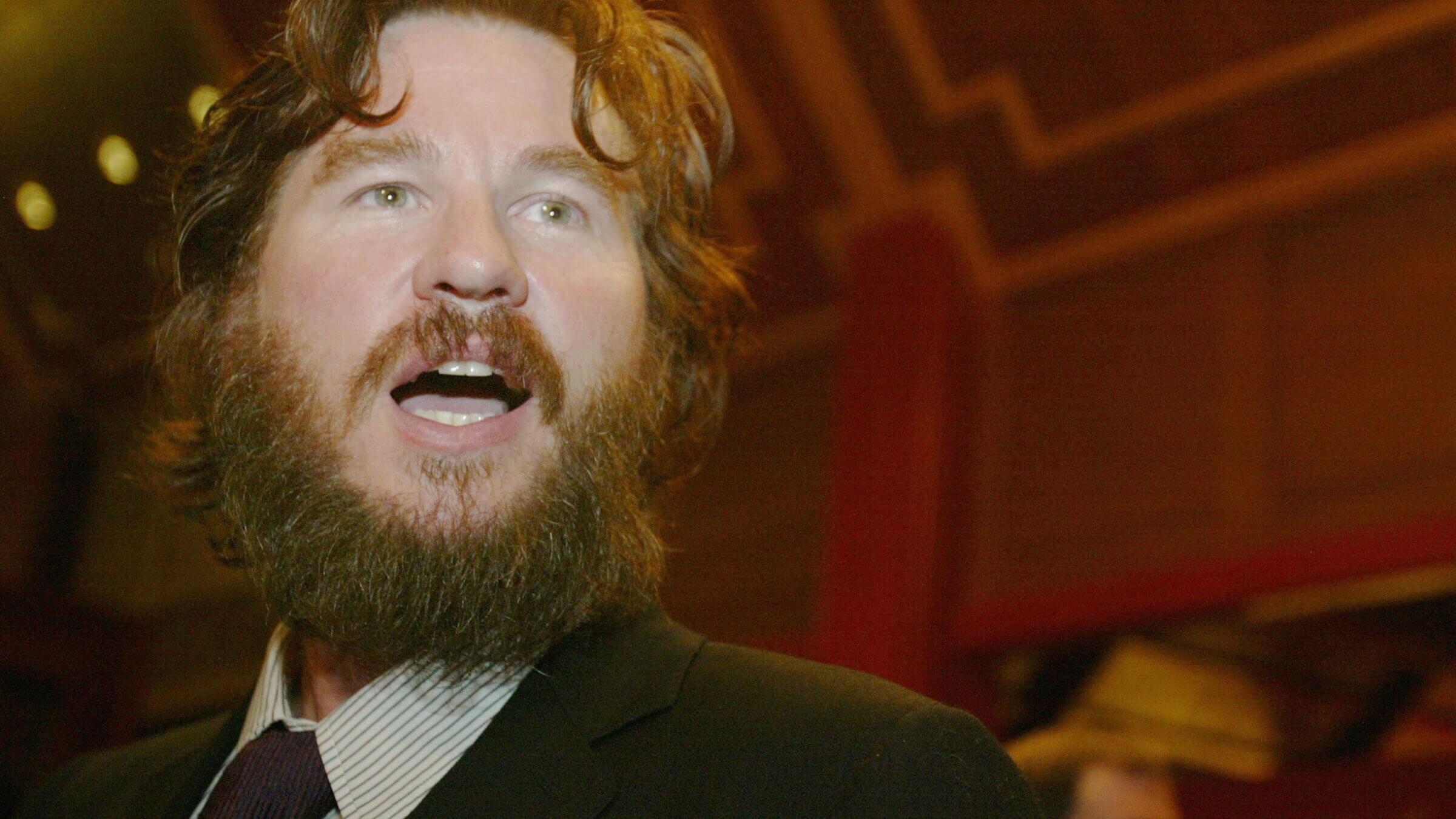Val Kilmer was the voice of my generation’s Moses (and God)
The actor, who died Tuesday, played the Hebrew prophet three times

Val Kilmer played Moses three times. Photo by Paula Bronstein/Getty Images
If God spoke in a still, small voice, for my generation, it was the voice of Val Kilmer.
The actor, who embodied Batman, Jim Morrison and Top Gun’s Iceman, died Tuesday at the age of 65. In the 1998 animated film The Prince of Egypt, he did double duty, voicing both God and Moses. (His role as Moses was advertised on the poster — his contribution as God went uncredited.)
In many ways, Kilmer wasn’t the obvious choice. With his signature Cupid’s bow lips, his looks would seem, to a casual observer, to be his greatest asset as a performer. On another, midrashic level, his voice was far too fluid for Moses — Jeff Goldblum, who played his brother, Aaron, with his trademark speech hesitations, would seem like the better candidate.
And, it should go without saying, Kilmer, though claiming some Sephardic ancestry, wasn’t Jewish, but in fact an avid Christian Scientist, and nearly gave his life to the movement. His practitioner approached him as he was graduating Juilliard to serve as her successor.
“Like Moses, I said no,” Kilmer wrote in his memoir, I’m Your Huckleberry, “I said I didn’t want the job. In essence, I believe I said no to the Fates because, unlike Moses, I would never pick up the staff. To this day I wonder whether I denied my destiny. Or should I say, I was pretty damn sure I was running away from my destiny.”
By saying no, Kilmer gave us some of the 1980s and ’90s’ most interesting performances, the best — to my mind — being his turn as the consumptive Doc Holliday in 1993’s Tombstone (his part in Heat, where he reloads a gun in a fashion praised by military experts, may be a close second).
While he rejected the call to be a leader in Christian Science, he did not say no to playing Moses. In fact, he picked up the staff, as it were, three times.
In Prince of Egypt, Jeffrey Katzenberg’s Dreamworks epic with songs by Stephen Schwartz, Kilmer imbued his Moses with a sensitive strength, resolute in his challenge to Ralph Fiennes’ Pharaoh, but, facing the burning bush — and his own thundering baritone as God — uncertain he’s right for the role of prophet.
“You’ve chosen the wrong messenger. How can I even speak to these people?” Kilmer’s Moses asks. To which Kilmer’s God answers back, “Who made man’s mouth? Who made the deaf, the mute, the seeing or the blind?”
Kilmer’s performance was so effective it invited encores.
“My second Moses was in The Ten Commandments, a mortifying-at-best live musical at the Kodak Theatre with a very young Adam Lambert and a bunch of other Broadway kids too talented for the material,” Kilmer wrote in his autobiography, calling the experience “Monty Python and the Holy Fail.”
Even though he didn’t relish the experience of the repeat performance, in an interview with the Christian Science Sentinel, Kilmer revealed a traditionally Jewish understanding of Moses, celebrating the prophet’s “spirit of humility.” He added that Moses’ “complete acceptance of his situation,” going from a prince of Egypt to an exiled shepherd, “makes him the chosen one for the job.”
His third time as the “Man of the Mountain” was for a hip-hop gospel simply called Moses. I haven’t yet listened, but may do so now. (It should be noted that years before he played the man who wrote the Torah, Kilmer had a memorable gag about the holiday that celebrates the completion of its yearly cycle.)
While Kilmer doesn’t have much to say in his memoir about his voiceover for Moses, a part that made him the Millennial answer to Charlton Heston, the character clearly made an impression on how he thought.
Kilmer writes that Mark Twain, who he embodied in Citizen Twain, a one-man show where the great satirist engages with Kilmer’s other hero, Christian Science founder Mary Baker Eddy, was “a lonely leader of a tribe looking for hope. In that regard, he reminds me of Moses.”
The tragedy of Kilmer’s late life was losing his God-given gift. In 2014, he was diagnosed with throat cancer and had a tracheostomy. He would use a voice box and plug the hole in his throat to speak. In a way, God and Moses’ voice were silenced.
But Kilmer still showed up, making a memorable appearance in Top Gun: Maverick, commanding the screen almost entirely without dialogue.
In his final days, Kilmer was, like Moses, slow of speech, but for those of us who witnessed his take on the prophet, there could be no mistake — he was the right man for the job, and we’re lucky he accepted it.

















